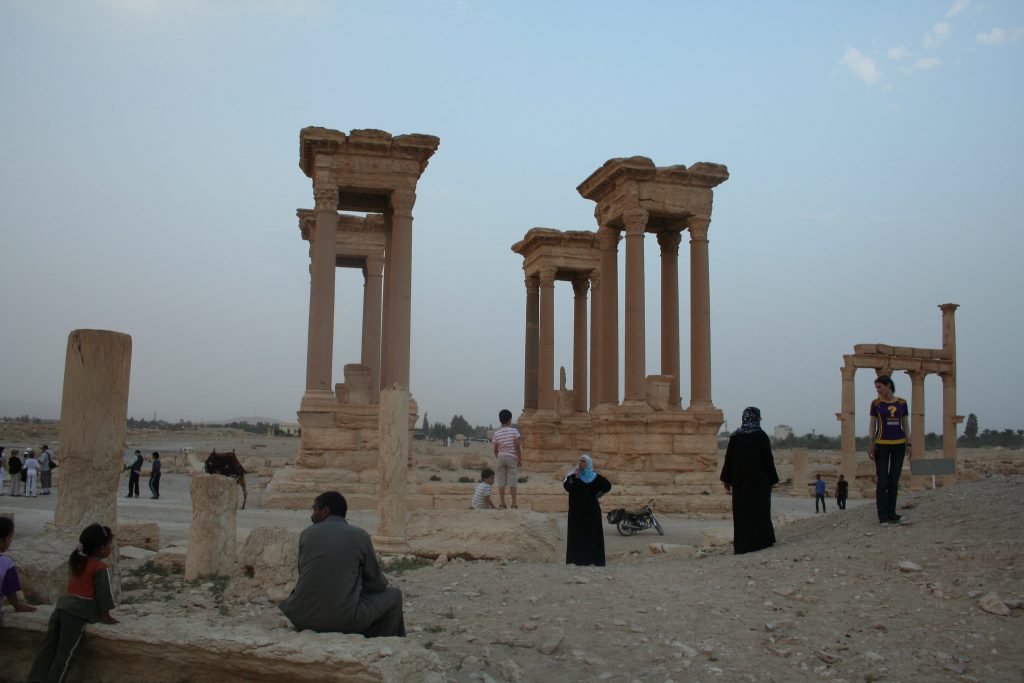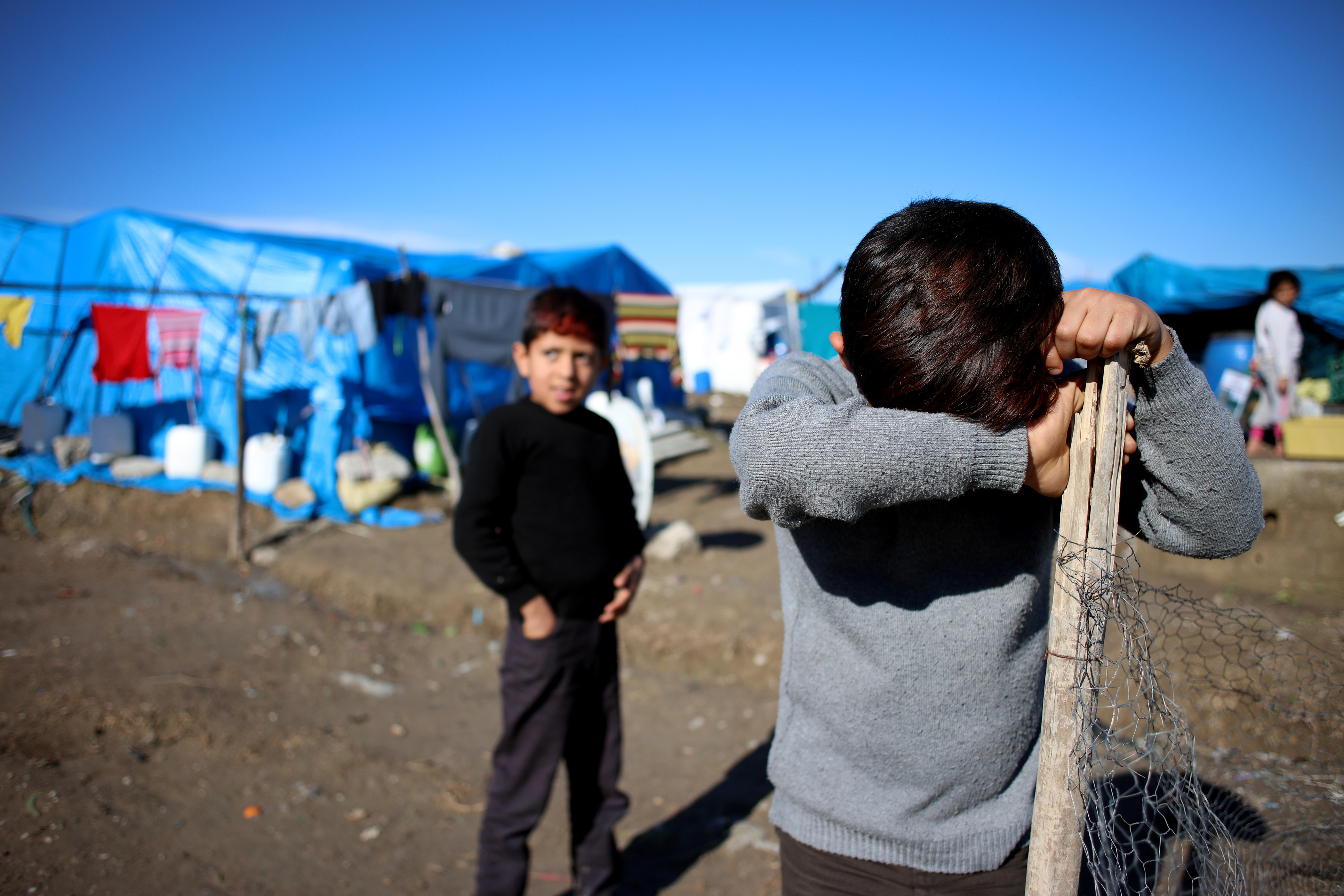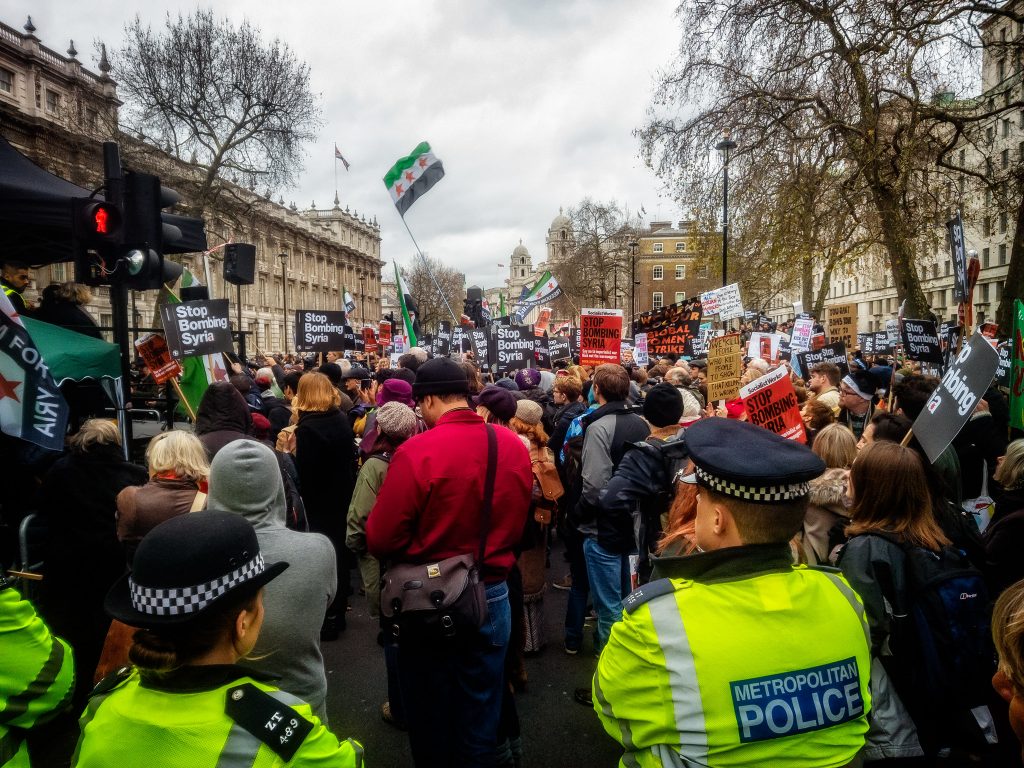Today, Syrians are still seeking refuge (in countries such as Germany, Canada, and the United States) in order to flee the havoc that war has brought to their once tranquil homeland. Anti-government demonstrations erupted in 2011 as a part of the Arab Spring, a series of protests and uprisings in the Middle East and Northern Africa. At first, the protests in Syria were peaceful, but they dangerously escalated following the brutal response of Bashar al-Assad’s regime killing and imprisoning hundreds of people. In months to follow, tensions would further intensify. Bloodlust would ensue, as violent rifts between the government, religious sects and rebel groups deepened. Eventually, these clashes developed into today’s Syrian civil war. And the greatest casualties of the war? Civilians—the civilians who stayed behind, the civilians who are internally displaced, and the civilians perished in search of refuge but didn’t find it.
A Groudswell of Student Activism
 On November 10, 2016, hundreds of people lined up outside the Student Union Theatre, hoping to be seated for the panel on the Syrian refugee crisis. This effort began as a student-led, class group project (POLS 2998) by four dedicated Huskies; yet, it would build into something much grander.
On November 10, 2016, hundreds of people lined up outside the Student Union Theatre, hoping to be seated for the panel on the Syrian refugee crisis. This effort began as a student-led, class group project (POLS 2998) by four dedicated Huskies; yet, it would build into something much grander.
One of the four students Sam Jaffe, a junior in International Relations and an exchange student from Nottingham University, reflected on the similarities between the election and Brexit (the referendum that resulted in the exit of his home country, the United Kingdom, from the European Union): “Brexit happened while I was [in the United States] this summer before officially starting the school year. Having already gone through Brexit, there was an eerie feeling of déjà vu in the air after Donald Trump was elected. I was angry and I knew something had to be done.” After knowing many students who wanted to aid relief efforts, but didn’t know how to, Jaffe felt lucky to be one of the few students who knew precisely what must be done. Sam felt it was his responsibility to move these issues to the front and center for people to be a part of a Syrian humanitarian movement.
Additionally, Jacob Burte, a senior International Relations major, wanted to resettle a Syrian family in Connecticut but “realized it wasn’t feasible for four undergraduate students to do that. We decided to put a panel together to educate the campus about this ongoing crisis.” After phone calls to political offices and Non-Governmental Organizations (NGOs), these four students were able to assemble a panel that consisted of Congressman for the 2nd Congressional District of Connecticut, Democrat Joe Courtney; co-leader of Quiet Corner Refugee Resettlement Reverend Ann Plumley; Refugee Core Committee Chairperson Mark Hand; and resettled Syrian refugees: Ahmed Karajha and Marwan Al-Dalati.
Reflections in the Mirror – The Face of a Syrian Refugee
The students introduced the panelists and moderated the discussion. Karajha and Al-Dalati, Syrian refugees resettled in Connecticut, spoke about the unrest they experienced in Syria. Karajha likened Syrians to Americans by describing them as hardworking people who hope and aspire to happy lives as Americans do. The Syrian need, she says, is a human one: to provide for their families by putting food on the table and a book in the hands of their children. Yet achieving this life is not without obstacles along the way, as the Syrian economic downward spiral proved to be poisonous air, as Syrians suffocated under the dust of economic collapse. Karajha witnessed, firsthand, the rising tide of civilian protests. At the peak of frustration, the Syrian youth had enough and decided to take matters into their own hands by kindling the spark of a revolution. The political environment in Syria is such that people are no longer allowed to publicly discuss politics without risking harm or certain death.
From the early days, Al-Dalati saw the signs of his city’s infrastructure and social ruin. People in his city were gradually taken from their families without explanation and the young people who rallied were never seen or heard from again. Syrians took yet another stand and organized protests against these disappearances. But the unsettled climate would only see further escalation, towards deadly ends: Al-Dalati witnessed a rally in which 700 people were killed by police forces with assault weapons and heavy military artillery, including rockets, “After that [government assault], people did not know what to do. This was where they lived, where their home was. The government was not satisfied with this, so they started to go into people’s homes to take them away.” All Karajha and Al-Dalati wanted was to live a normal life, to breathe fresh air and go to the grocery store without having to weather the reign of missiles. They treasure what we often take for granted: the simple act of going about our daily business, unmolested.
Community Support, Friendship, and Advocacy
Reverend Ann Plumley, co-pastor of First Church of Christ located in Mansfield, is passionate about refugee resettlement because of the power individuals have when they rally together as a community to make a concrete difference in the world. Plumley described how the refugees she works with are supported through all possible efforts, “We provide transportation for them to school, grocery stores, and more, until they can take their driver’s license exam, which has now been reinstated in Connecticut in Arabic.” Mark Hand, a Manchester resident who became involved with the crisis along with other members from his church (the Gilead Congregational Church in Hebron), revealed “What we provide the most is friendship and advocacy.” Hand—though saddened by the swell of anti-immigrant sentiments across the nation—was relieved that none of Syrian families he works with were victims themselves of such hate. In fact, Karajha’s young daughter was given the notable award of Student of the Month at her Connecticut elementary school. Hand was heartened by the open embrace of schools and communities, but saw “bureaucracy as the biggest roadblock because of the sheer amount of paperwork and navigation needed to get support from the government for basic necessities, like housing.”
Congressman Joe Courtney expressed his pride in the fact that Connecticut expedited the refugee admittance process, despite the Department of Homeland Security adding yet another layer of screening: “We’re in a precarious moment where there is [a] new [transition of] administration in our executive branch. Events like this panel discussion are so important to educate ourselves and others about the work that is being done because the President-elect’s transition website is not exactly the most encouraging in regards to refugee resettlement.” It is precisely this that is required to build awareness around this issue, providing the necessary fuel to keep turning the wheels of advocacy.
Karajha and Al-Dalati want others to know that they left Syria so they could live in a place that wasn’t dangerous. Karajha is here to be peaceful and to have a better life—to build a better family that can be educated and follow through with basic life needs. Al-Dalati says, “If I wanted to act dangerously, I would have stayed in Syria.”
“A New & Unique Political Movement”
The history of immigration within the United States is a complicated and checkered one. After the event, we spoke with Associate Professor of Community Organization Kathryn Libal, who is also the Director of UConn’s Human Rights Institute, to help unpack this entangled issue. “The refugee has a long history of of exclusion in U.S. history in different moments and who is perceived as worthy of inclusion,” Libal says. This fraught history puts into clear perspective the political outcry that has come to define this humanitarian matter. Take for instance, the exclusionary rhetoric from the former Indiana Governor, now the Vice President of the United States, who then noted through his spokesperson, “The safety and security of the people of Indiana is Governor Pence’s highest priority. The state of Indiana took decisive action last year to suspend resettlement of Syrian refugees after the terrorist attack in Paris.” It is exactly this framing of the refugee’s interests as being markedly distinct from that of the American people. In a word, the refugees are them, not us. Here, Libal explains, “There is a conflation of immigrant, migrant and refugee all within one category of ‘other.’ That’s a new and unique political moment.”




